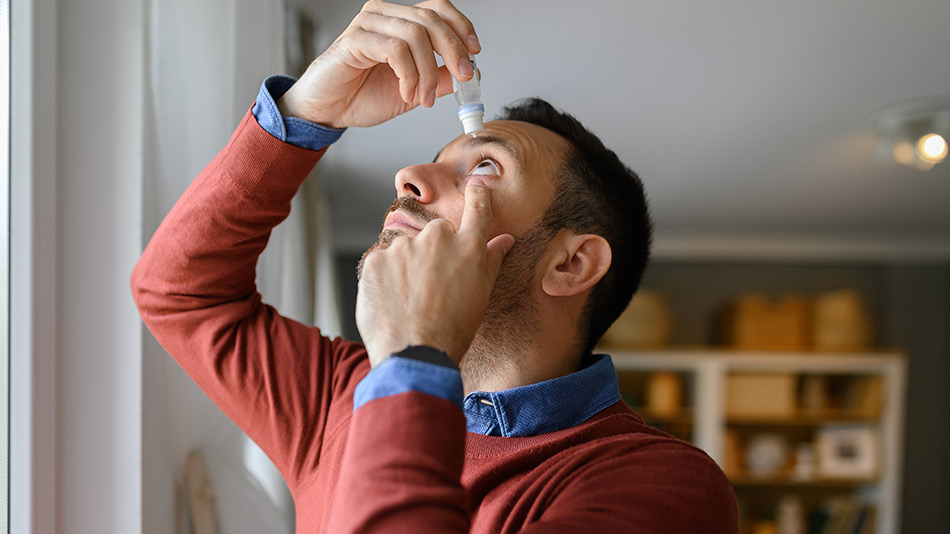
What causes dry eyes?
Dry eyes are a common condition that affects millions of people worldwide. If you've ever experienced that gritty, burning sensation in your eyes, you may have wondered what causes it. At My Eye Clinic in Gosforth, we help patients uncover the root causes of their dry eye symptoms and provide effective treatments. Here’s a closer look at the most common causes of dry eyes and what you can do about them.
The Science Behind Dry Eyes
Your eyes need a healthy, stable tear film to stay comfortable and function correctly. Tears aren’t just water—they are a mixture of:
- Water: For moisture
- Oils: To prevent evaporation
- Mucus: To spread the tears evenly
- Proteins and antibodies: To fight infections
When any part of this tear film is out of balance, dry eyes can occur.
Common Causes of Dry Eyes
1. Meibomian Gland Dysfunction (MGD)
Meibomian glands, located in your eyelids, produce the oil layer of your tear film. When these glands become blocked or don’t work properly, tears evaporate too quickly, causing dryness.
Symptoms:
- Gritty feeling
- Blurry vision
- Redness and irritation
Treatment Options:
- BlephEx™ to clean the eyelids
- Warm compresses to open blocked glands
- Omega-3 supplements to support gland function
2. Environmental Factors
External conditions can also play a big role in dry eyes. Common environmental causes include:
- Air conditioning/heating: Dries out indoor air
- Wind and smoke: Increase tear evaporation
- Screen time: We blink less when using digital devices, reducing tear production
Prevention Tips:
- Use a humidifier indoors
- Take regular breaks from screens (follow the 20-20-20 rule)
- Wear wrap-around sunglasses in windy conditions
3. Ageing
Dry eyes become more common as we age. Tear production naturally decreases over time, with individuals over 50 being particularly susceptible.
Why it happens:
- Glands become less efficient
- Hormonal changes affect tear production
4. Hormonal Changes
Hormonal fluctuations can disrupt tear production, particularly in women.
When it Occurs:
- During pregnancy
- Menopause
- Hormone replacement therapy
5. Medical Conditions
Several medical conditions can cause dry eyes, including:
- Autoimmune diseases (e.g., Sjögren’s syndrome, lupus, rheumatoid arthritis)
- Diabetes
- Thyroid disorders
6. Medications
Certain medications have dry eye as a side effect, such as:
- Antihistamines
- Antidepressants
- Blood pressure medications
- Hormonal birth control
Tip: If you suspect your medication is causing dry eyes, speak to your healthcare provider about alternative options.
How to Prevent and Treat Dry Eyes
Understanding the cause of your dry eyes is the first step toward effective treatment. Here’s what you can do:
- Practice Good Eye Hygiene: Regularly clean your eyelids to prevent blockages.
- Use Artificial Tears: Over-the-counter eye drops can offer temporary relief.
- Seek Professional Help: Persistent symptoms may require prescription eyedrops and more advanced treatments like BlephEx™ or Intense Pulsed Light (IPL) treatment..
When to contact an eye specialist
If your dry eyes persist despite lifestyle changes, it may indicate an underlying condition that needs medical attention. At My Eye Clinic, we use state-of-the-art diagnostic tools to assess your tear film and identify the root cause of your symptoms.
Don’t let dry eyes interfere with your life. Contact us today to schedule a consultation and learn about the latest treatments available.
Find out if you are suitable for vision correction
Vision correction isn’t suitable for everyone.
The first step is to take the self test so you can find out whether you can benefit.




